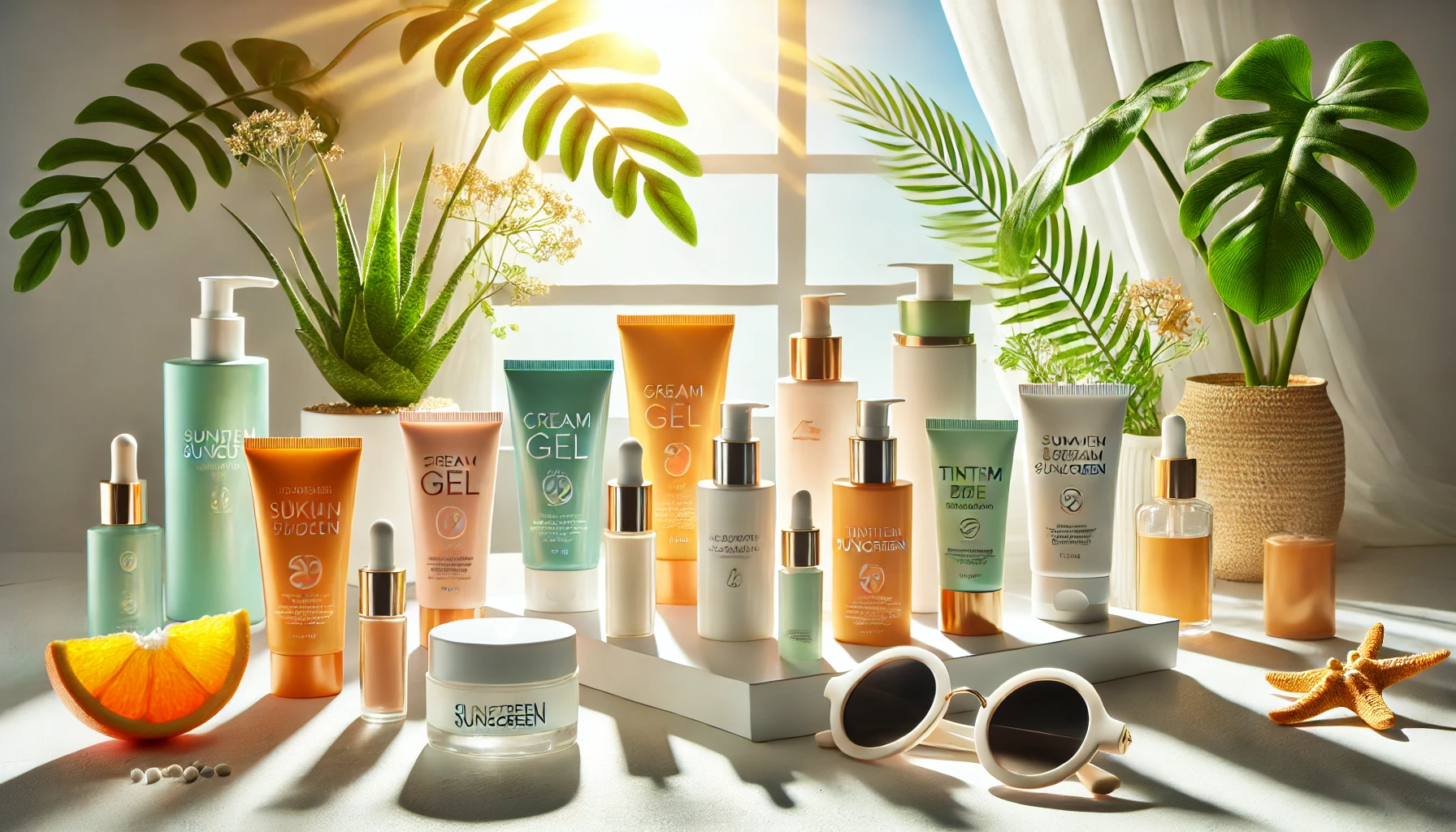Sunscreen is an essential part of any skincare routine, protecting your skin from harmful UV rays and preventing premature aging. Choosing the right sunscreen for your skin type ensures maximum effectiveness without causing irritation. Here’s a comprehensive guide to help you find the perfect match.
Why Sunscreen Is Non-Negotiable
Exposure to ultraviolet (UV) rays can cause:
- Sunburn.
- Premature aging, including wrinkles and dark spots.
- Skin cancer.
Using sunscreen daily shields your skin and keeps it healthy over time.
Understanding SPF and Broad-Spectrum Protection
Before selecting a sunscreen, it’s important to know two key terms:
- SPF (Sun Protection Factor): Measures how well the sunscreen protects against UVB rays, which cause sunburn. Dermatologists recommend SPF 30 or higher for daily use.
- Broad-Spectrum: Protects against both UVA (aging rays) and UVB rays.
Always look for a sunscreen labeled “broad-spectrum” to ensure comprehensive protection.
Choosing Sunscreen Based on Skin Type
Oily or Acne-Prone Skin
For oily or acne-prone skin, choose sunscreens that are:
- Oil-free or labeled as “non-comedogenic” to prevent clogged pores.
- Gel-based or mattifying to control excess shine.
- Containing ingredients like zinc oxide, which help soothe acne-prone skin.
Dry Skin
For dry skin, hydration is key. Look for sunscreens that are:
- Cream-based with moisturizing ingredients like glycerin or hyaluronic acid.
- Chemical sunscreens that absorb easily without leaving a white cast.
Sensitive Skin
Sensitive skin requires extra care. Choose sunscreens that are:
- Mineral-based with ingredients like zinc oxide or titanium dioxide. These are less likely to cause irritation.
- Free of fragrances, alcohol, and harsh chemicals.
Combination Skin
For combination skin, consider hybrid formulas that provide hydration without being too heavy. A lightweight lotion with a balanced mix of chemical and physical filters works well.
Mature Skin
For aging skin, opt for sunscreens with added benefits:
- Antioxidants like vitamin C or E to fight free radicals.
- Hydrating ingredients to plump and smooth fine lines.
Types of Sunscreens
Chemical Sunscreens
- Absorb UV rays and convert them into heat.
- Lightweight and easy to apply without leaving a white cast.
- Ideal for daily use under makeup.
Physical (Mineral) Sunscreens
- Reflect UV rays off the skin’s surface.
- Best for sensitive or reactive skin.
- May leave a slight white cast but are gentle and effective.
Common Sunscreen Mistakes to Avoid
- Applying Too Little: Use at least a nickel-sized amount for your face and a shot glass worth for your body.
- Skipping Reapplication: Sunscreen should be reapplied every 2 hours, especially if you’re outdoors.
- Ignoring Certain Areas: Don’t forget your ears, neck, hands, and the tops of your feet.
- Using Expired Sunscreen: Always check the expiration date, as expired products lose effectiveness.
Sunscreen Application Tips
- Apply sunscreen 15-30 minutes before sun exposure.
- Use a sponge or makeup brush to blend sunscreen evenly under makeup.
- Opt for a tinted sunscreen to combine sun protection with light coverage.
Final Thoughts
Choosing the right sunscreen for your skin type is essential for effective protection and comfort. By understanding your skin’s needs and selecting the appropriate formula, you can protect yourself from harmful UV rays while maintaining healthy, glowing skin. Make sunscreen a daily habit—it’s the simplest way to preserve your skin’s beauty and health over the long term.


